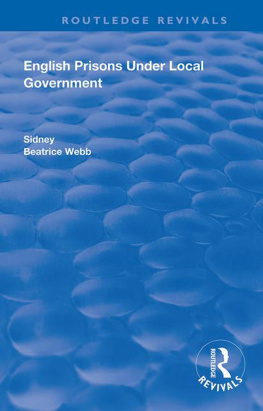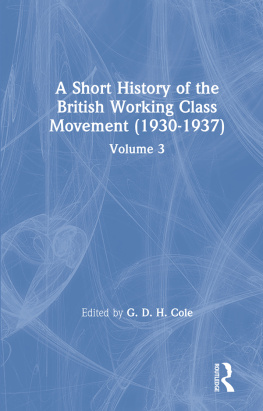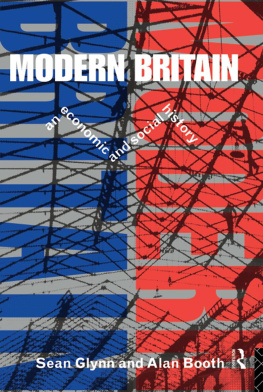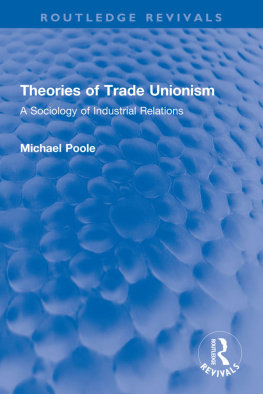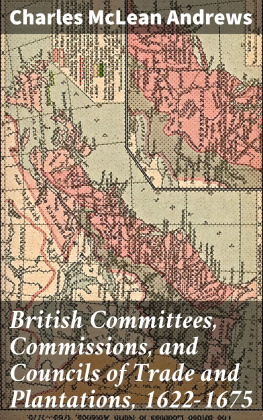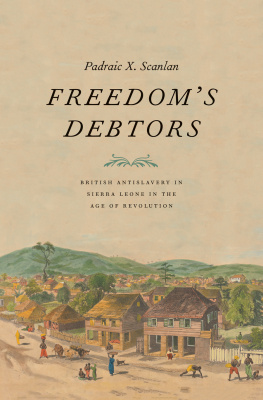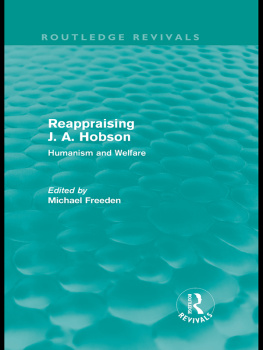Sidney Webb - The History of Trade Unionism (Barnes & Noble Digital Library)
Here you can read online Sidney Webb - The History of Trade Unionism (Barnes & Noble Digital Library) full text of the book (entire story) in english for free. Download pdf and epub, get meaning, cover and reviews about this ebook. year: 2011, publisher: Barnes & Noble, genre: Science. Description of the work, (preface) as well as reviews are available. Best literature library LitArk.com created for fans of good reading and offers a wide selection of genres:
Romance novel
Science fiction
Adventure
Detective
Science
History
Home and family
Prose
Art
Politics
Computer
Non-fiction
Religion
Business
Children
Humor
Choose a favorite category and find really read worthwhile books. Enjoy immersion in the world of imagination, feel the emotions of the characters or learn something new for yourself, make an fascinating discovery.
- Book:The History of Trade Unionism (Barnes & Noble Digital Library)
- Author:
- Publisher:Barnes & Noble
- Genre:
- Year:2011
- Rating:3 / 5
- Favourites:Add to favourites
- Your mark:
- 60
- 1
- 2
- 3
- 4
- 5
The History of Trade Unionism (Barnes & Noble Digital Library): summary, description and annotation
We offer to read an annotation, description, summary or preface (depends on what the author of the book "The History of Trade Unionism (Barnes & Noble Digital Library)" wrote himself). If you haven't found the necessary information about the book — write in the comments, we will try to find it.
Sidney Webb: author's other books
Who wrote The History of Trade Unionism (Barnes & Noble Digital Library)? Find out the surname, the name of the author of the book and a list of all author's works by series.
The History of Trade Unionism (Barnes & Noble Digital Library) — read online for free the complete book (whole text) full work
Below is the text of the book, divided by pages. System saving the place of the last page read, allows you to conveniently read the book "The History of Trade Unionism (Barnes & Noble Digital Library)" online for free, without having to search again every time where you left off. Put a bookmark, and you can go to the page where you finished reading at any time.
Font size:
Interval:
Bookmark:
SIDNEY AND BEATRICE WEBB

This 2011 edition published by Barnes & Noble, Inc.
All rights reserved. No part of this publication may be reproduced, stored in a retrieval system, or transmitted, in any form or by any means, electronic, mechanical, photocopying, recording, or otherwise, without prior written permission from the publisher.
Barnes & Noble, Inc.
122 Fifth Avenue
New York, NY 10011
ISBN: 978-1-4114-4631-1
INTRODUCTION TO THE EDITION OF 1911 (TENTH THOUSAND)
T HE continued demand for the History of Trade Unionism, after sixteen years' sales, gives us an opportunity of writing a new introductory chapter.
We make no attempt to bring the history down to the present day. The student will find in our companion volume, entitled Industrial Democracythe closer analysis of Trade Union structure and function to which the closing paragraph of the history refersnot merely a survey of Trade Union problems but a detailed critical examination of almost every phase of the organization and regulation of labour, Factory Legislation no less than Trade Union regulations, together with an analysis of the working of democratic machinery, and a new exposition of the economics of the wage-contract.
This examination of a large part of the field of political and economic science has, in our judgement, not been affected by either the expert criticism or by the subsequent progress of events. To the judgements and conclusions then expressed, we still adhere.
Trade Unionism, of which we have here sought to represent the two hundred years' history, so far as the United Kingdom is concerned, stands, in 1911, once more at a crisis of its fate. As in 18245, 186771 and 19016, it finds its position and status gravely impugned, and must, if it is not to come into disastrous conflict with the law, necessarily obtain fresh legislative authorization. In the case known as the Osborne Judgement, in December 1909, the House of Lords, acting in its judicial capacity as the highest Court of Appeal, practically tore up what had, since 1871, been universally understood to be the legal constitution of a Trade Union. Formally this judgement decided only that Mr. Osborne, a member of the Amalgamated Society of Railway Servants, was entitled to restrain that Trade Union from making a levy on its members (and from using any of its funds) for the purpose of supporting the Labour party or maintaining Members of Parliament. But in the course of that decision a majority of the Law Lords, therein following all three judges of the Court of Appeal, laid it down as law (and thereby made it law until Parliament shall otherwise determine), (a) that although Parliament has always avoided any express incorporation of Trade Unions, they must all now be deemed to be corporate bodies, formed under statute, and not unincorporated groups of individual persons; (b) that it follows, by an undoubted principle of English law, that a body corporate, created under statute, cannot lawfully do anything outside the purposes for which the statute has incorporated it; (c) that as the purposes for which Trade Unions are incorporated have to be found somewhere authoritatively given, the definition of a Trade Union, which Parliament incidentally enacted in the Trade Union Act of 1876, must be taken to enumerate accurately and exhaustively all the purposes which any group of persons falling within that definition can, as a corporate body, lawfully pursue; and (d) that the payment of Members of Parliament, and, indeed, any political action whatsoever, not being mentioned as one of these purposes and not being considered by the judges incidental to them, cannot lawfully be undertaken by any Trade Union, even if it was formed, from the outset, with this purpose duly expressed in its original rules, and even if all its members agree to it and continue to desire that their organization shall carry it out.
This momentous judgement destroys, at a blow, the peculiar legal status that Mr. Frederic Harrison devised for Trade Unionism in 1868 (see page 255 of this volume), and which Parliament thought that it had enacted in 18716. The statutes of 1871 and 1876, which have always been supposed to have enlarged the freedom of Trade Unions, are now held to have deprived these bodies of powers that they formerly enjoyed. It is not, as will be seen, a question of protecting a dissentient minority. Whether all the members are unanimous, or whether they are nearly evenly divided, does not affect the legal position. Trade Unions now find themselves, pending the necessary revision by the legislature of this remarkable judge-made law, forbidden to do anything, even if all their members desire it, which cannot be brought within the terms of a clause in the Act of 1876, which Parliament (as Lord James of Hereford emphatically declared) never meant to be taken in that sense. "What is not within the ambit of that statute," said Lord Halsbury, "is, I think, prohibited both to a corporation and a combination." This is the new limitation suddenly put on Trade Unions. All their educational work is suddenly prohibited; all their participation in municipal administration is forbidden; all their association for common purposes in Trades Councils and the Trade Union Congress becomes illegal. The judges have stopped the most characteristic and, as was supposed, the most constitutional, of the three customary ways that (as we have shown in our Industrial Democracy) Trade Unions pursued of enforcing their Common Rules, namely, the Method of Legal Enactment; grave doubt is thrown on the legality of some of the most extensive developments of their second way, the Method of Mutual Insurance; whilst the way that the House of Lords now expressly prescribes is exactly that which used to give rise to so much controversy, namely, the Method of Collective Bargaining, with its concomitant of the Strike. So topsy-turvy a view of Trade Unionisma view which seems to have arisen from insufficient knowledge of its two centuries of historycan hardly be upheld by Parliament.
What is the explanation of the view of Trade Union constitution that the judges are now taking? The Courts of Justice, it must be remembered, have peculiar rules of their own for the construction of statutes. When the plain man wants to know what a document means, he seeks every available explanation of the intention of the author. When the historian enquires the purpose and intention of an Act of Parliament, he considers all the contemporary evidence as to the minds of those concerned. The Courts of Law, for good and sufficient reasons, debar themselves from going behind the face of the document, and are therefore at the mercy of all the unstudied ineptitudes of House of Commons phraseology. Along with this rigour as to the intention of a statute, the English and American judges combine a capacity for developments of doctrine in the form of legal principles which is, we believe, unequalled in other judicial systems. Now, the subject of corporations is one of those in which there has been, among the present generation of English lawyers, a silent and almost unselfconscious development of doctrine, of which, in Germany, Gierke has been the great inspirer, and Maitland, in this country, the brilliant exponent. Our English law long rigidly refused to admit that a corporate entity could arise of itself, without some formal and legally authoritative act of outside power. How, it was asked, except by some definite Act of Creation by a superior, could the persona ficta come into existence? How, otherwise (as Madox quaintly puts it) could this mere "society of mortal men" become something "immortal, invisible and incorporeal"? As a matter of fact corporate entities of all sorts always did arise, without the intervention of the lawyers, and nowadays they arise with amazing ease, without any act of creation by a superior; and when the English lawyers refused to recognize them as existing, it was they who were irrational, and the common law itself that was at fault. Nowadays we live in a world of corporate entities of all sorts and of every degree of informalitycorporate entities that to the old-fashioned lawyer are still legally nonexistent as suchclubs and committees of every possible kind; groups and circles, societies and associations for every conceivable purpose; unions and combinations and trusts in every trade and profession; schools and colleges and "University Extension Classes," often existing and spending and acting most energetically as entities, having a common purse and a single will, in practice even perpetual succession and (if they desire such a futile luxury) a common seal, without any sort of formal incorporation. Gradually English lawyers (whom we need not suspect of reading Gierke, or even, for that matter, Maitland) are unconsciously imbibing the legally heterodox view that a corporation is anything which acts as such; and so far from making it impossible for the
Font size:
Interval:
Bookmark:
Similar books «The History of Trade Unionism (Barnes & Noble Digital Library)»
Look at similar books to The History of Trade Unionism (Barnes & Noble Digital Library). We have selected literature similar in name and meaning in the hope of providing readers with more options to find new, interesting, not yet read works.
Discussion, reviews of the book The History of Trade Unionism (Barnes & Noble Digital Library) and just readers' own opinions. Leave your comments, write what you think about the work, its meaning or the main characters. Specify what exactly you liked and what you didn't like, and why you think so.


